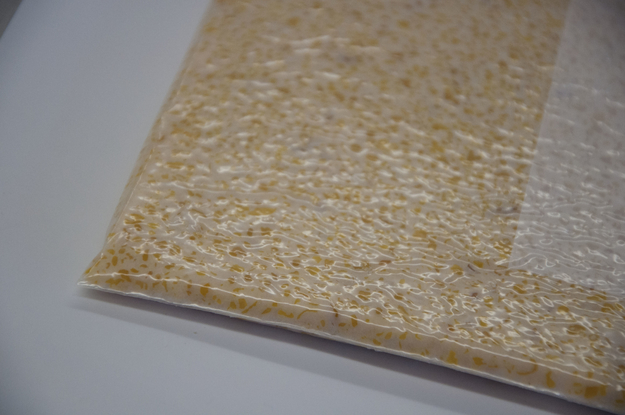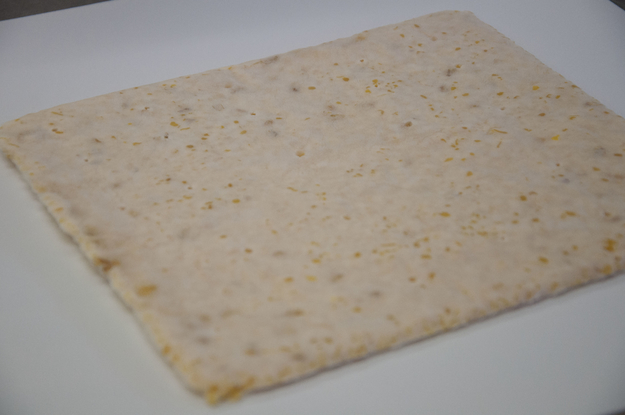Tempeh Sheet 1 Layer of Lupin Softness -

Last test to roll a fresh tempeh bowl into another shape proved that fresh tempeh can be shaped through dehydration process. This opened up the opportunity to make pliable tempeh sheets first and then form the sheet materials through dehydration process.
For future diner research, this technique can also help us design a workshop where diners can make their own customized tempeh forms.
Therefore I did a second test, to see the flexibility and capability of tempeh sheets. The substrate with starter culture were packaged flatly into fridge bags in 3 different thickness. The first is with 2-3 layers of substrate, say lupins; the second is with 1-2 layers of lupins; finally with only 1 layer of lupins. Tempeh Sheet Material Test Thickness Difference -

They were put in the incubator at 30-31˚C FOR 24 hours. After incubation, all of them were grown into tempeh sheets. Tempeh Sheets After 24 hours of Incubation -

Taking a closer look at one sheet with 2-3 layers before unwrapping, we can see that the mycelium grew quite fully in the flat bag.
Tempeh Sheet 2-3 layers Just out of Incubator -

I Unwrapped carefully, since the fresh sheets are all fragile with such small thickness. The unwrapping process was done by cutting the fridge bag and unfold them. It was smooth to get the sheets off the bag. It could be even easier to take them off when they are frozen. So I also put one bag directly into the freezer after incubation. This 1 layer lupin sheet directly put in the Freezer -

It was noticed that the up and bottom of the sheets looked different. It might be because that the bottom side is tight close the tray in the incubator, so the growth was restricted in space. However, since there was nothing to press on the up side of the fridge bag, so the growth was more free and has more space, causing its fluffy surface. Tempeh Sheet Air Entrance Side -


There was an apparent difference among 3 thickness in appearance, weight and flexibility.

The flexibility is best of the sheet of only 1 layer of lupins, but still quite good of the sheet with 2-3 layers. All of them are fragile, which must be dealt with carefully enough. The sheet size is ok.
The next step is to test the processing capability of the sheets in both frozen and fresh status. Can it but cut? Can it be shaped through mould? Can it be something we never imagine?